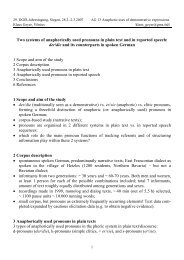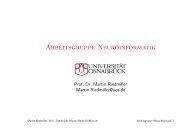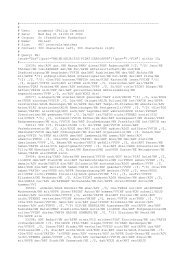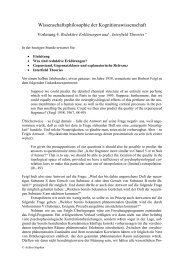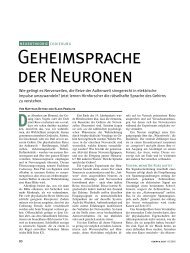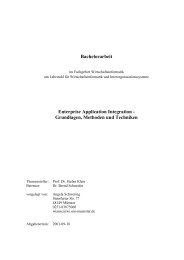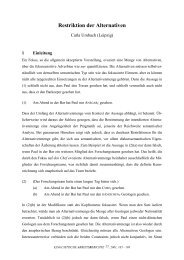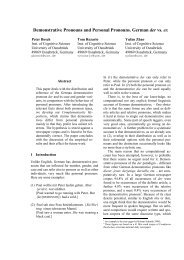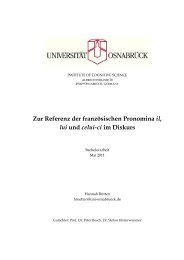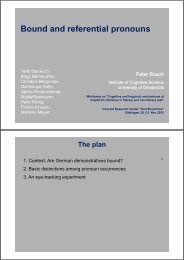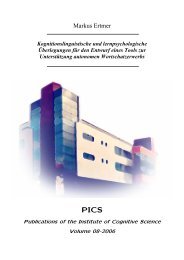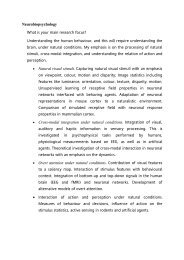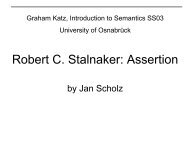Weak definites and German preposition - Cognitive Science
Weak definites and German preposition - Cognitive Science
Weak definites and German preposition - Cognitive Science
Create successful ePaper yourself
Turn your PDF publications into a flip-book with our unique Google optimized e-Paper software.
<strong>German</strong> Preposition-Article Contractions<br />
In English the availability of bare singular forms blocks a WD<br />
reading for the corresponding regular definite NPs.<br />
In <strong>German</strong>, the availability of contracted PPs (cPPs) blocks WD<br />
readings for the corresponding regular PPs (rPPs).<br />
(21) Maria ging {zu dem / zum} Supermarkt<br />
[Maria went to the supermarket]<br />
(22) Maria st<strong>and</strong> {an dem / am} Fenster<br />
[Maria was st<strong>and</strong>ing at the window]<br />
The difference to English is that <strong>German</strong> cPPs are not lexically<br />
restricted by their nouns, but are generally available, at least for<br />
some <strong>preposition</strong>s <strong>and</strong> some cases.<br />
<strong>German</strong> Preposition-Article Contractions<br />
- Lexical restrictions<br />
In st<strong>and</strong>ard written <strong>German</strong> contractions of <strong>preposition</strong> <strong>and</strong><br />
article are uncontroversially available for the dative singular in<br />
the masculine <strong>and</strong> neuter for the <strong>preposition</strong>s an, bei, in, von, zu:<br />
am, beim, im, vom, zum<br />
<strong>and</strong> for the dative singular feminine of zu:<br />
zur.<br />
Where contracted <strong>preposition</strong>al determiners are not available,<br />
<strong>German</strong> PPs do not differ from English PPs, neither in their<br />
syntax nor in their semantics.<br />
1<br />
1<br />
1<br />
2<br />
11<br />
12



